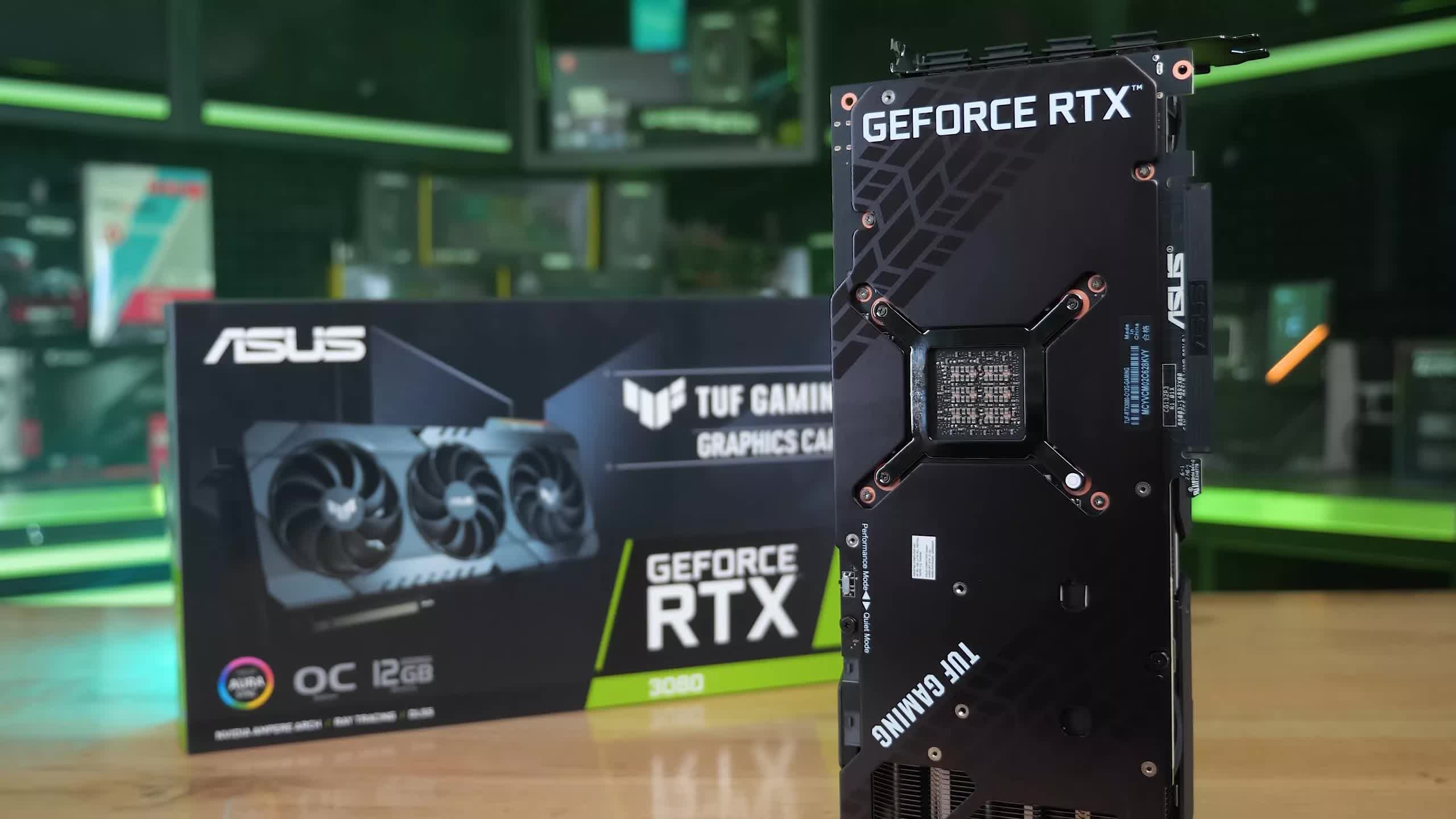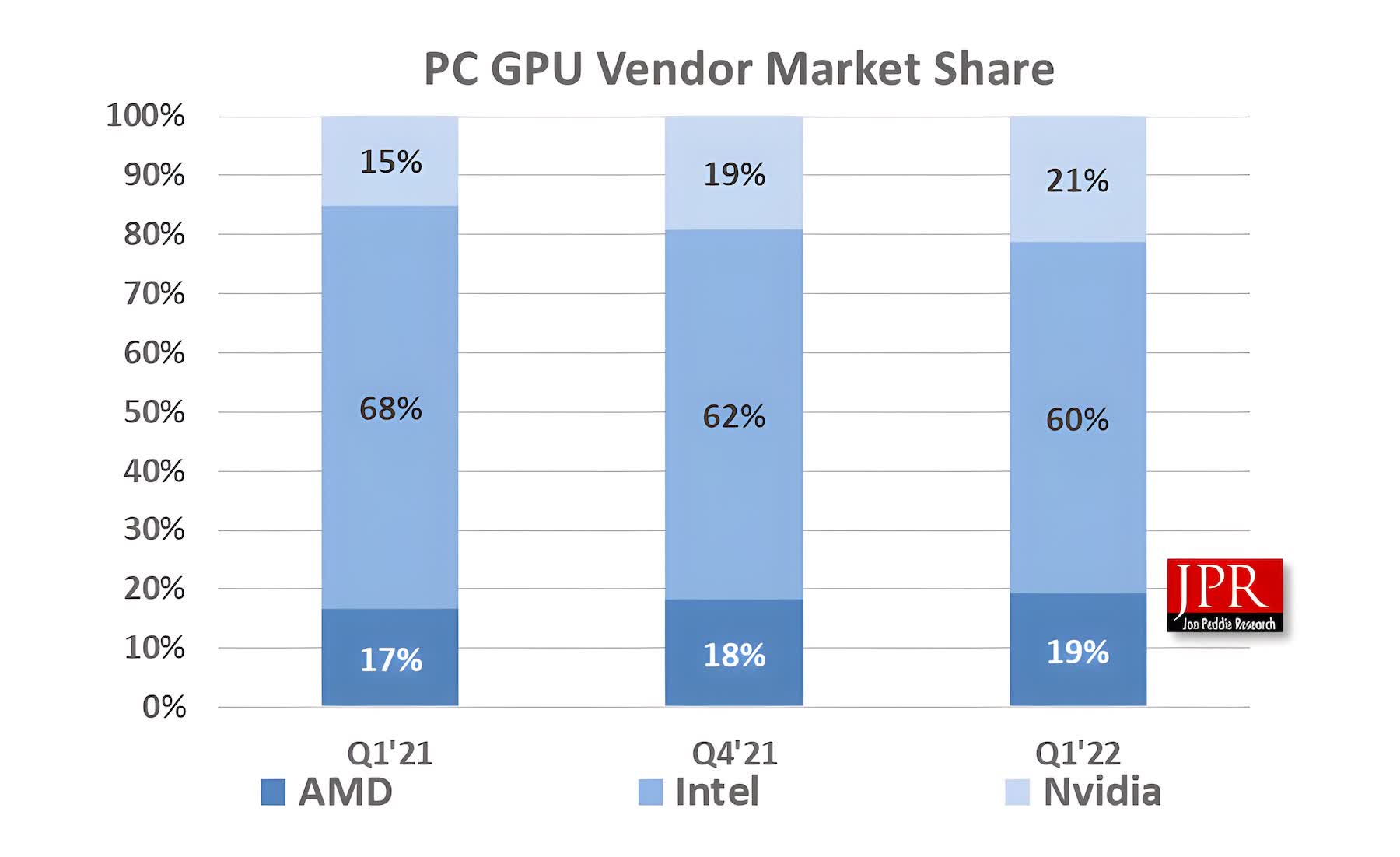Why it matters: Graphics card shipments usually take a small dive in the first quarter, and it's no different this time. The supply side has improved significantly in the past several months, while demand has only decreased every month. We might see prices dip below MSRP with a bit of luck later this year.

By now, it's no secret the days of highly-profitable GPU mining are behind us. A combination of surging energy prices and a sharp drop in Ethereum's value has put a damper on many people's dreams of "printing money" with little effort using consumer hardware that they can always resell to gamers on the second-hand market. At the same time, gamers are reluctant to pay even manufacturer-suggested prices for graphics cards when a new generation is right around the corner.
Jon Peddie Research (JPR) reports that the GPU market shows signs of slowing down after a few years of unrelenting demand. The first quarter of 2022 saw GPU makers sell 96 million units, which is a 6.2 percent decrease from the previous quarter. Analysts believe this dip results from lockdowns in China, the Russia/Ukraine conflict, and growing delays in the global freight transportation system. However, JPR still predicts a favorable annual growth rate of 6.3 percent through 2026 for the industry and a market penetration rate of 46 percent for discrete GPUs by the end of the forecast period.

Intel saw the most significant decline, dropping 8.7 percent for the three months ending in March, while AMD shipments decreased by 1.5 percent. In contrast, Nvidia saw an increase of 3.2 percent. Furthermore, demand for discrete GPUs made by AIB partners increased by 1.4 percent over the same period, good news for gamers.
The overall dedicated GPU market landscape has remained the same, with Nvidia holding a market share of 78 percent while AMD sits at a much more modest 17 percent. Intel has a little over 4 percent, which won't change until it starts shipping its Arc A-series GPUs globally.
The analysts also note that CPU shipments saw a 10.8 percent drop in Q1 2022 compared to the previous quarter and a 26.2 percent drop compared to the same quarter of last year. This negative growth suggests that consumers' appetite for CPU upgrades is waning, so retailers may soon offer discounts to make them more attractive.
https://www.techspot.com/news/94778-gpu-demand-slowed-first-months-2022-but-market.html